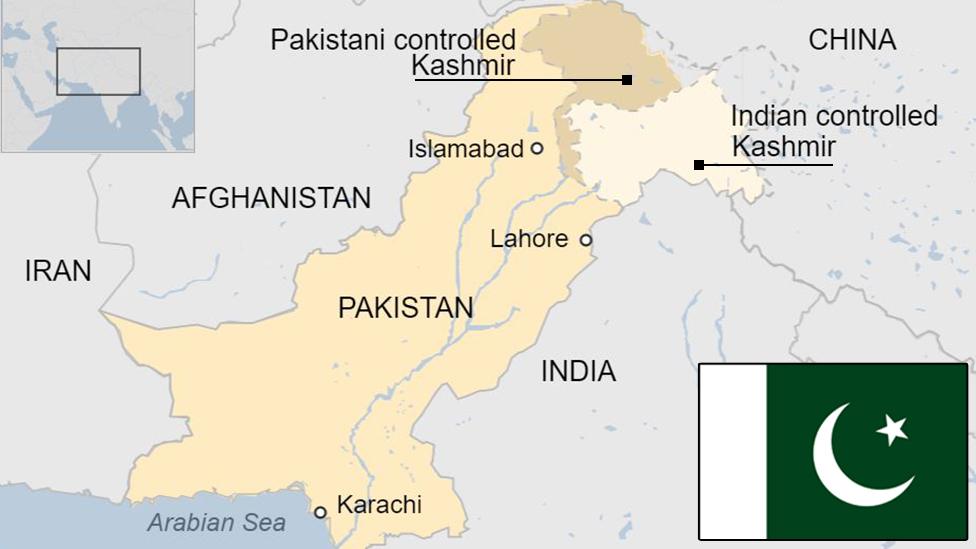US drone 'kills Haqqani commander Sangeen Zadran'
- Published

A senior commander of the powerful Haqqani militant network has been killed in a US drone strike in north-west Pakistan, officials say.
Sangeen Zadran, named on US and UN blacklists, was among five killed when missiles were fired at a house in North Waziristan, near the Afghan border.
The Haqqani group are known for carrying out attacks in Afghanistan.
The Taliban told the AP news agency he was still alive. But other reports said his funeral had taken place.
Officials told the BBC that the militant's funeral had been held in the regional capital of Miranshah and was attended by many.
He also held the position of "shadow governor " of the Afghan province of Paktika, and reports say the Taliban nominated his brother, Bilal Zadran, to replace him in that post.
Experts say the 45-year-old was viewed as a senior militant leader in both countries and that he is a big loss to the Haqqani group although not irreplaceable.
In 2011, the US state department added him to its list of specially designated global terrorists, claiming he orchestrated the kidnappings of Afghans and foreigners in the rugged and violent border area.
He has also been identified as the man who kidnapped a US soldier, Bowe Bergdahl, four years ago - the only known American soldier currently held by Afghan insurgents.
The US has blamed the Haqqani network for a series of high-profile attacks in the border regions in recent years.
'Extrajudicial killings'
Pakistan's foreign ministry condemned Friday's drone strike as a violation of its sovereignty.
This was the second strike in a week, and the attacks caused the loss of innocent civilian lives and continued to affect US-Pakistan relations, the ministry added.
There have been fewer strikes in recent years, but Pakistani Prime Minister Nawaz Sharif has demanded an end to all attacks.
The Haqqani network has been described by US military commanders as one of the most resilient militant groups operating in Afghanistan.
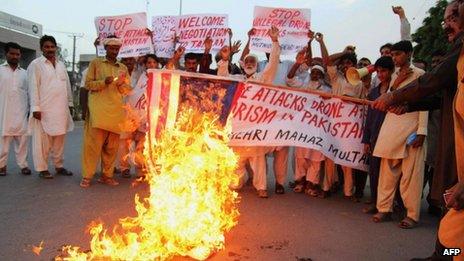
Cricketer turned politician Imran Khan has led the anti-drone protests in Pakistan
It is believed to be based in Pakistan along the volatile and porous border and regularly attacks US forces in Afghanistan from its mountain bases in Pakistan.
Mr Sharif has called for a joint strategy to stop US drone strikes.
The issue is hugely controversial in Pakistan, where parts of the government and military have often been accused of criticising the use of drones in public, but co-operating in private.
It is estimated that between 2004 and 2013, CIA drone attacks in Pakistan killed up to 3,460 people - although this figure will not include the very latest strikes.
About 890 of them were civilians and the vast majority of strikes were carried out by the Obama administration, research by the Bureau of Investigative Journalism said.
Earlier this year, Mr Obama called the strikes part of a legitimate campaign against terrorism, but he also pledged more programme transparency and stricter targeting rules.
- Published31 May 2013
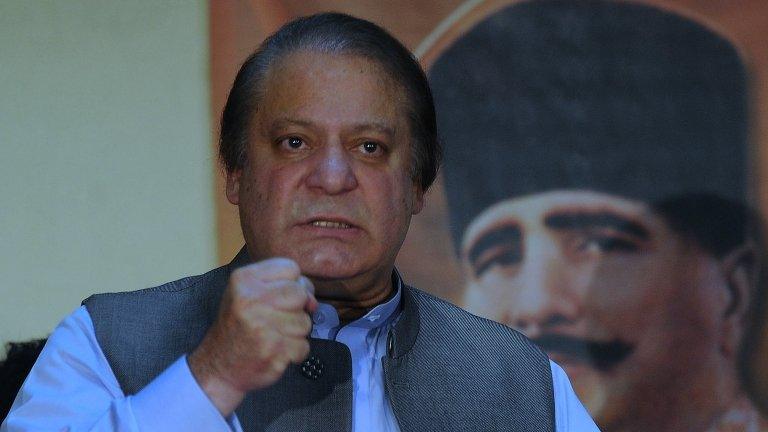
- Published8 February 2013
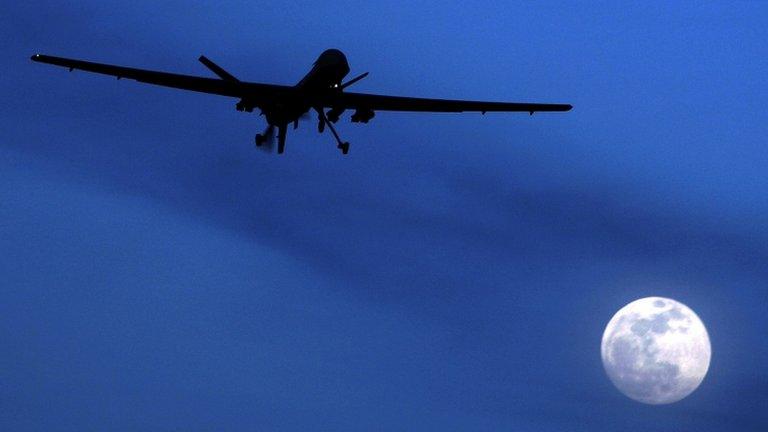
- Published4 April 2012
- Published4 October 2012
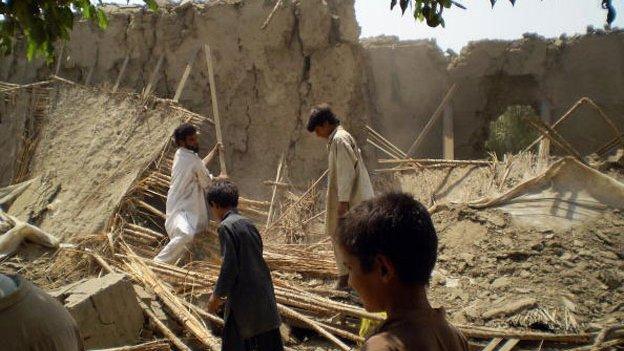
- Published15 March 2024
